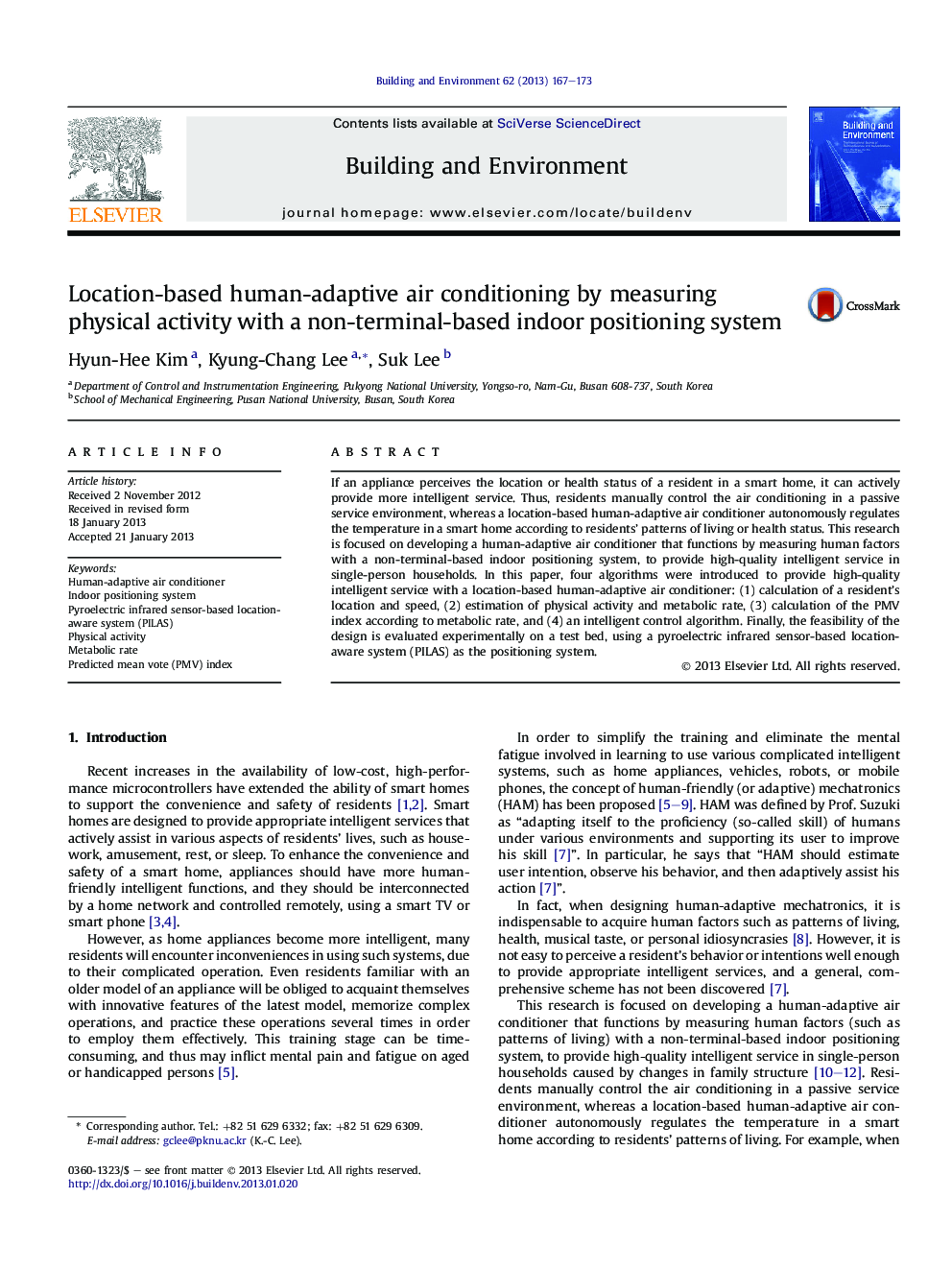| Article ID | Journal | Published Year | Pages | File Type |
|---|---|---|---|---|
| 248320 | Building and Environment | 2013 | 7 Pages |
If an appliance perceives the location or health status of a resident in a smart home, it can actively provide more intelligent service. Thus, residents manually control the air conditioning in a passive service environment, whereas a location-based human-adaptive air conditioner autonomously regulates the temperature in a smart home according to residents' patterns of living or health status. This research is focused on developing a human-adaptive air conditioner that functions by measuring human factors with a non-terminal-based indoor positioning system, to provide high-quality intelligent service in single-person households. In this paper, four algorithms were introduced to provide high-quality intelligent service with a location-based human-adaptive air conditioner: (1) calculation of a resident's location and speed, (2) estimation of physical activity and metabolic rate, (3) calculation of the PMV index according to metabolic rate, and (4) an intelligent control algorithm. Finally, the feasibility of the design is evaluated experimentally on a test bed, using a pyroelectric infrared sensor-based location-aware system (PILAS) as the positioning system.
► A human-adaptive air conditioner that functions by measuring human factors. ► To get high-quality intelligent service, intelligent control algorithm is proposed. ► Resident's location and speed is calculated using a non-terminal-based IPS. ► Physical activity and metabolic rate is estimated. ► PMV index according to metabolic rate is calculated.
